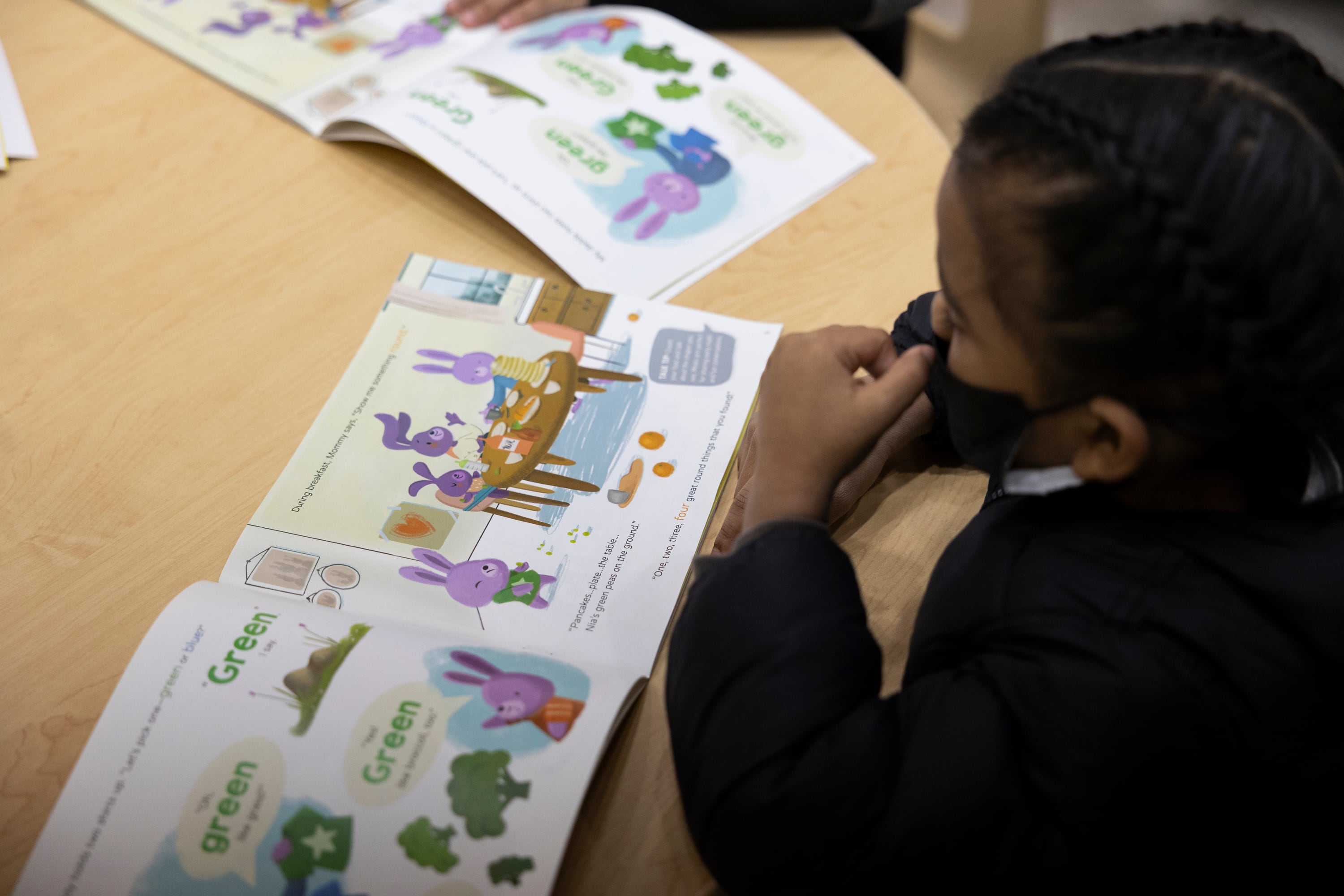Black students and students from low-income homes were more than twice as likely in Michigan to have to repeat the third grade compared with their white and wealthier peers who also were identified for retention because they struggled with reading.
The gap in who gets held back is one of the details contained in the latest research report on Michigan’s Read by Grade 3 law, which requires that schools hold back students who are a grade level or more behind in reading.
The law provides so many ways a student can get an exemption that only 545 students who were third graders in the 2021-22 school year are repeating the grade this year. But the racial and income gaps among those students suggest that there may be variations in how the exemptions are being applied.
Overall, Black students and students from low-income homes are more likely to be flagged for retention based on their reading test scores. But researchers with the Education Policy Innovation Collaborative at Michigan State University found that greater proportions of them are actually repeating third grade. The report shows that 13.6% of the Black students who were flagged were held back, while just 5.7% of white students who were flagged were held back. Similarly, 10.5% of eligible students from low-income families were held back, compared with 4.3% of students who are not from low-income families.
“Those are pretty big disparities,” said Katharine Strunk, EPIC director. “Those suggest to me that retention is being implemented differentially for different kinds of students.”
The gaps are growing, too. During the 2020-21 school year 9.8% of Black students who tested at least a year behind grade level were retained, compared with 4.9% of white students; and 7.3% of eligible students from low-income homes were retained, compared with 3.6% of wealthier students.
Michigan’s Read by Grade 3 law, enacted in 2016, required schools identify struggling readers and provide intervention. The rule requiring that students be held back was part of the law, but didn’t kick in until the 2020-21 school year. Exemptions are available based on many factors, such as a student’s special education or English language learner status, if they’ve previously been held back, and if the parent and superintendent agree that retention isn’t in the child’s best interest.
EPIC has been working with researchers from the University of Michigan, the Michigan Department of Education, and the state Center for Educational Performance and Information to research the impact of the law, according to the report.
Here are a couple of other highlights from the latest report, which was released Tuesday:
- While the number of students who were held back rose in the last year, from 228 to 545, that number is a tiny fraction of the students who were flagged for retention — just 0.6% during the 2021-22 school year. Nearly 5,700 of last year’s third-graders scored low enough to be identified for retention. That’s 5.8% of all third-graders, up from 4.8% the previous year.
- Teachers and principals in districts that retained at least one student were more likely than their peers in schools that promoted all students to believe retention was an effective intervention. That suggests districts are more likely to retain students if they believe it is effective, the report said. But Strunk cautioned that even though these educators were more likely to be optimistic about retention, overall the majority of them were opposed to retention as a strategy.
The Read by Grade 3 law was controversial from the beginning, with many education groups and Democrats in the Michigan Legislature opposed, particularly to the retention rule. Now, as Democrats prepare to assume control of both houses of the legislature and the governor’s office for the first time in decades, it is likely that parts or all of the law could be on the chopping block.
Strunk said it would be a mistake to kill the law entirely.
“There’s a lot more to the law than just retention,” Strunk said. “We have data from prior to the pandemic that actually shows this seems to be improving student achievement in early literacy. So, it would be a shame to throw the baby out with the bathwater and get rid of the entire law.”
That doesn’t mean the law doesn’t have some parts that need to be amended, Strunk said, but “there are a lot of good things in this law, like a real focus on instructional coaching, like the real focus on professional development, like the focus on training teachers about literacy essentials. … We want those things to continue. As policymakers think about how and where to go next with literacy policy, it’s important to think about this.”
Lori Higgins is the bureau chief for Chalkbeat Detroit. You can reach her at lhiggins@chalkbeat.org.






